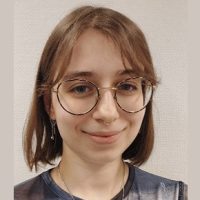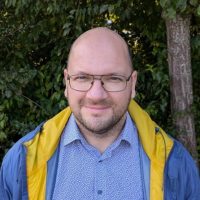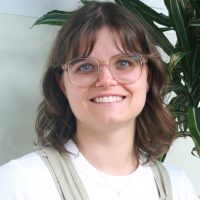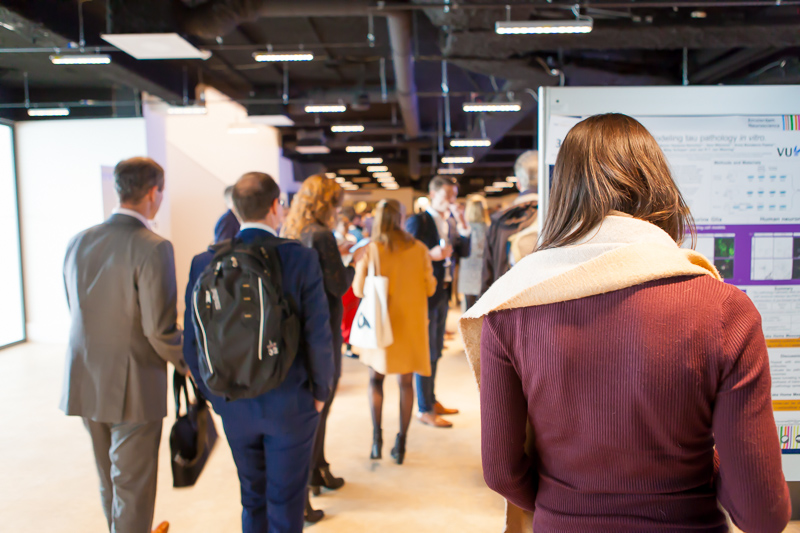About
Transform fundamental understanding into effective health interventions
Translational neuroscience is a dynamic research field that fosters the integration of basic research and clinically-oriented research. The aim of it is to transform the fundamental understanding and new insights that come from neurobiology into effective health measures. This highly interdisciplinary field aims to combine research of universities, academic hospitals, and biotech- & pharma-industry.
Our People

Linda Douw is an associate professor in the department of Anatomy and Neurosciences at Amsterdam UMC. She is fascinated by anything that ‘connects’, ranging from neurons to symptoms to humans. She leads the research section on Multiscale Network Neuroscience (MULTINET) and mainly uses brain cancer as a model disease, with the aim of improving patient outcomes by understanding and manipulating personalized multiscale network data.

Anke Dijkstra is an assistant professor at the Swammerdam Institute for Life Sciences at the UvA. She works on selective neuronal vulnerability in neurodegenerative diseases, and specialized in psychiatric symptoms in frontotemporal dementia using human post-mortem tissue. Her current research focusses on the molecular identity of vulnerable cell populations in the human brain, and aims to use models to assess the unique properties of these neurons that could lead to a specialized approach to modulate this vulnerability.

Anne van Nifterick is a postdoctoral researcher at Alzheimer Center Amsterdam and Clinical Neurophysiology Department of Amsterdam UMC location VUmc, focusing on neurophysiological changes and underlying mechanisms in early-stage Alzheimer’s disease. She holds a Master’s in Neuroscience from VU University Amsterdam, and has extensive experience in translational research, combining animal models, computational models, and human studies to investigate brain activity and disease mechanisms. As part of the Translational Neuroscience Network committee, Anne aims to foster collaboration and organize events that connect clinical and fundamental research.

Eline Vansina is a PhD candidate working in the department of Anatomy and Neuroscience and the department of Radiology and Nuclear Medicine at Amsterdam UMC. With a main interest in psychopharmacology and brain disorders, she investigates the effects of methylphenidate treatment on the brain in ADHD. For this project, she applies MRI techniques to investigate the effects of methylphenidate on brain functioning in both rodents and humans.

Dorien Maas is a neuroscientist, and is fascinated by how cognitive problems arise and how they might be treated to improve the well-being of oncological patients. Her projects range from testing novel interventions to treat chemobrain, to multiscale imaging of the cognitive neurobiology of brain tumors, with a focus on neuron-glia interactions. Her team bridges the translational gap by using both preclinical and clinical models and outcome parameters.

Szabolcs David is a postdoctoral researcher at the Radiotherapy Department of Amsterdam UMC. His research focuses on understanding how the brain and tumor respond to radiotherapy, aiming to use these insights to improve brain tumor treatment. He combines advanced imaging, computational modeling, and clinical data analysis to develop personalized therapies that enhance outcomes and reduce side effects.

Mona Zimmermann is a PhD candidate at Amsterdam UMC, investigating brain activity as a prognostic biomarker for tumor progression in glioblastoma patients. With a background in Brain and Cognitive Sciences, she previously studied the relationship between brain activity and functional networks in glioma patients using MEG and graph theory. Her current research combines MEG, EEG, and fMRI to improve the differentiation between real tumor progression and pseudoprogression. Passionate about interdisciplinary approaches, she aims to advance diagnostics for primary brain tumors by bridging concepts from neuroscience, clinical research, and mathematical modeling.

Lucas Baudouin is a post-doctoral researcher in the Department of Anatomy and Neurosciences at Amsterdam UMC. After completing his PhD on the cell biology of the developmental process of myelination using preclinical cell and animal approaches, he is now focusing on the myelin component of cancer neuroscience in glioma patients. Using post-mortem and resected human tissues, he is studying the complex cellular and molecular crosstalk between myelinating cells and glioma cells.

Marike van Lingen is Lab Manager in the MULTINET team within the department of Anatomy and Neurosciences at Amsterdam UMC. Her background lies in Psychobiology and Neurosciences. In her current role, she is involved in various projects within the team, ranging from working with resected human glioma tissue to collecting and analyzing clinical data, including MRI scans, MEG, and cognitive tests. She gets energized by alternating the different modalities and is curious to work together on figuring out how to combine these types of data.

Bio will follow.
Translational Neuroscience Network
In the last decade, academia and industrial partners have been exploring new collaborations at TN2 events. Over the years, these collaborations translated to new insights and effective drug therapies, neurotechnologies, or disease-monitoring tools.
By connecting basic and clinical researchers we aim to increase the knowledge exchange between both fields of research. This cross-fertilization is important to increase efficiency by which new therapeutic strategies are tested clinically (from lab to patient). Another important contribution is the importance to provide more accurate feedback about the efficacy of the clinical applications of new treatments (from patient to lab).
Bridging the gap between knowledge and treatment
Translational neuroscience is on a path in exploiting new insights of the mysteries of the human brain and the peripheral nervous system, to counteract disorders. Globally, millions of people suffer from neurological and mental disorders that drastically affect the quality of life. Unfortunately, for most of these disorders, effective interventions are limited. That’s where we step in, ready to build a bridge between basic knowledge and treatment.
Contact us
